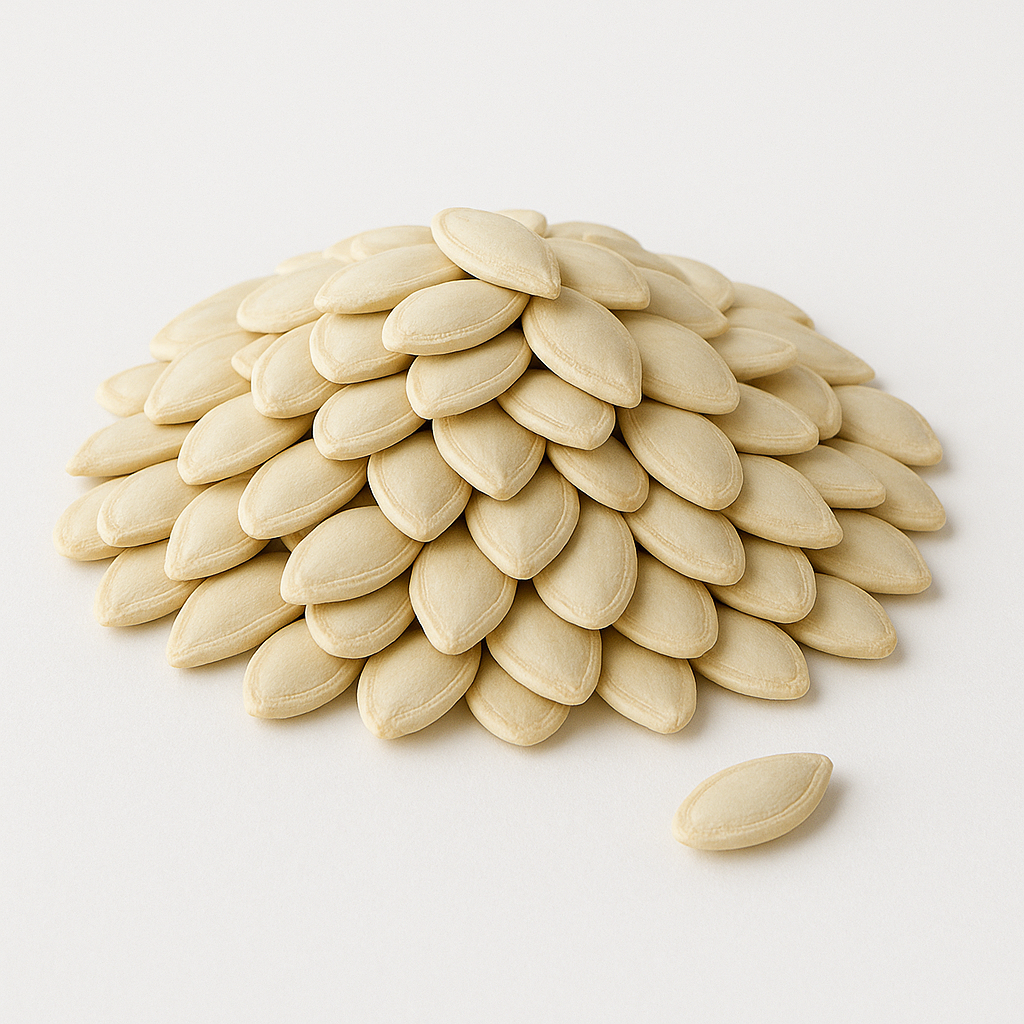Wadi
Pumpkin seeds (Pepitas, not technically a nut, but often considered one due to their nutritional profile)
Pumpkin seeds (Pepitas, not technically a nut, but often considered one due to their nutritional profile)
Couldn't load pickup availability
Primary Uses:
1. Culinary uses:
- Roasted and salted as a snack
- Added to trail mix or granola
- Used as a topping for salads or soups
- Ground into a paste for use in sauces or dips
- Used as a crust for meat or fish dishes
2. Flavoring uses:
- Added to baked goods such as breads or muffins
- Used as a seasoning for roasted vegetables or meats
- Used to flavor rice dishes or stews
- Added to smoothies or protein shakes for extra nutrition and flavor
3. Aroma uses:
- Used in aromatherapy for its calming and relaxing scent
- Added to homemade candles or soaps for a natural fragrance
- Used in potpourri or sachets to freshen up a room
- Added to bath salts or scrubs for a soothing and exfoliating experience.
Other Uses:
1. Medicinal uses: Pumpkin seeds are rich in nutrients such as magnesium, zinc, and antioxidants, which have been linked to various health benefits. They are often used to promote prostate health, improve heart health, and boost immune function.
2. Religious uses: In some cultures, pumpkin seeds are used in religious ceremonies and rituals. For example, in Mexico, pumpkin seeds are used to make a traditional sweet called alegría, which is often offered as a gift during the Day of the Dead celebrations.
3. Ornamental uses: Pumpkin seeds are often used as a decorative element in fall and Halloween-themed displays. They can be painted, carved, or used to create wreaths and other crafts.
4. Insect repellent: Pumpkin seeds contain compounds that are believed to repel certain insects, such as mosquitoes and ticks. Some people use pumpkin seed oil as a natural insect repellent.
5. Dyeing agent: Pumpkin seeds can be used to create natural dyes for fabrics and other materials. The seeds can be boiled to extract a yellowish-orange pigment that can be used to dye wool, silk, and other fibers.
6. Folklore uses: In some cultures, pumpkin seeds are believed to have magical properties. For example, in some Native American traditions, pumpkin seeds are used in healing rituals and to ward off evil spirits.
7. Culinary garnish: Pumpkin seeds are a popular ingredient in many cuisines around the world. They can be roasted and salted for a crunchy snack, or used as a garnish for soups, salads, and other dishes. Pumpkin seed oil is also used in cooking and as a salad dressing.
Caution:
1. High in calories: Pumpkin seeds are high in calories, which can be a disadvantage for those trying to maintain a low-calorie diet.
2. High in fat: Pumpkin seeds are also high in fat, which can be a concern for those trying to limit their fat intake.
3. Potential allergen: Some people may be allergic to pumpkin seeds, which can cause allergic reactions such as hives, itching, and difficulty breathing.
4. High in phytic acid: Pumpkin seeds contain high levels of phytic acid, which can interfere with the absorption of certain nutrients in the body.
5. May cause digestive issues: Eating too many pumpkin seeds can cause digestive issues such as bloating, gas, and diarrhea.
6. May contain harmful substances: Pumpkin seeds may contain harmful substances such as aflatoxins, which can be toxic if consumed in large amounts.
7. May interact with medication: Pumpkin seeds may interact with certain medications, such as blood thinners, and should be consumed with caution by those taking these medications.
Share


